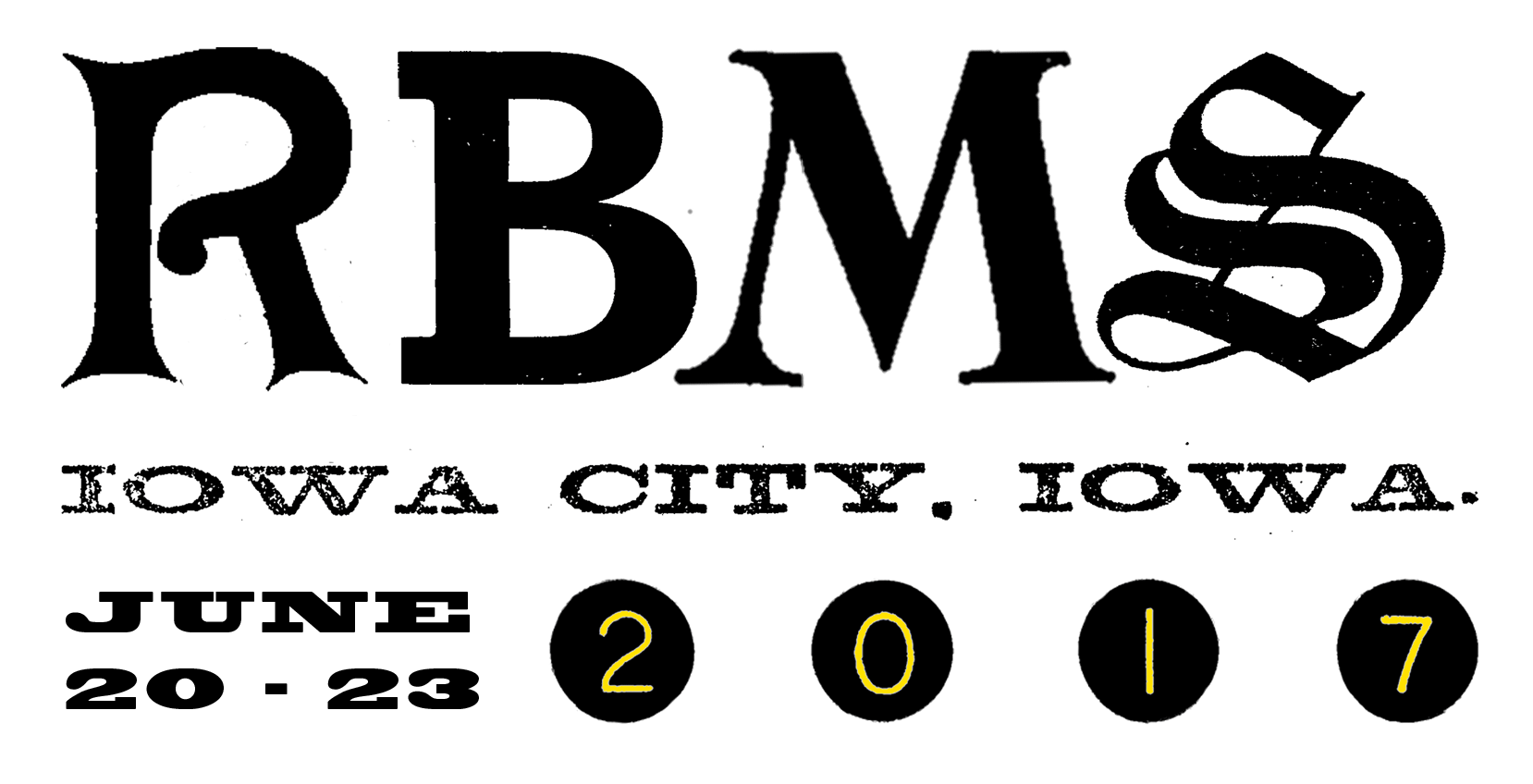Panel: Stories We Tell With Students: Pedagogy and Process*
Sponsored by Pazzo Books
Extending the Narrative of Primary Source Research as a Process: Subject Specialists As Beneficial Interlopers in Special Collections Research Instruction
There are several narratives we tell in our research instruction, depending on what kind of librarian does the teaching. Subject specialist librarians teach the story of searching strategies, the library’s online discovery tools, paid databases, evaluation of sources, and research guides. Special collections librarians teach the story of the value and relevance of primary sources, the history of the book, the nature of archives, and how to find, request, and handle special collections materials.
There are also many narratives embedded in research: how researchers become interested in topics, how they search for primary and secondary sources, how they gauge the scholarly conversation, and how they modify their topics based on questions generated by the sources.
At the Claremont Colleges Library, a team of subject liaisons and special collections librarians has developed a workshop series that brings together the different narratives of special collections librarian, subject specialist, and researcher. In the first workshop students engage with a physical source, interrogating its physical characteristics as well as its contents in order to generate research questions. In the second workshop students search in paid databases and on the web to contextualize their primary source and explore scholarly responses.
This case study will tell the story of how we developed workshops that tell the story of research as a holistic process with a holistic view of all the resources available to the researcher – and also how different types of librarians teaching together helps us learn about each other’s domains to become better teachers.
Speaker: Adam Rosenkranz, Arts & Humanities Librarian, Claremont Colleges Library, Claremont, CA.
Await Another Voice: Empowering Undergraduates in Social Justice Collections through Digital Storytelling
This paper investigates the rewards reaped and lessons learned from a semester-long course asking students to create a public-facing digital project around an under-researched and underrepresented archive or collection in order to confront issues of power and privilege. The course made use of hands on activities in collections, exposed students to issues of copyright and the postcustodial responsibilities collections have, as well as the biases we can pass along through metadata creation.
The practical outcome of this intensive partnership between faculty and librarian was the collection of deliberate approaches to teaching students in special collections, the incorporation of librarian and archivist expertise when partnering with faculty, and the purposeful approach taken when choosing and teaching a digital tool in the humanities.
Speaker: Elise M. Nacca, Head of Information Literacy Services, Teaching & Learning Services, University of Texas Libraries
Can I Write from the Cat’s Perspective?: Lessons from an Archives-Based Narrative Writing Assignment
This case study is of a collaboration between a special collections librarian and first-year writing instructor to craft a researched writing assignment. During a visit to the reading room, students were presented with a collection of documents and photos of a multi-generational local family. They were asked to identify some aspect of that family’s story to develop into a narrative of “a day in the life.” The collaborators share a pedagogical emphasis on discovery learning, which lends itself well to assignments based in archival investigation. In this case, even the assignment planning itself, though grounded in curricular objectives, involved no small amount of improvisation. This proved to be both a strength and a weakness, impacting the choice of materials, negotiation of assignment parameters, and structure of reading room activities.
A debrief after the semester’s conclusion revealed overall success: the students were engaged in the process, even when it was challenging or the content unexpectedly provoking, and their essays reflected this. It also brought out aspects of the experience and product that suggest room for improvement, observations that will guide future assignment planning and best practices. In particular, the instructor recommended re-framing the assignment as a “profile,” to ground it more in historical research and source analysis than invention. The librarian advocated for a more thoughtful selection of materials and use of space and visit time. Rethinking these aspects would help such an assignment better address a writing instructor’s research objectives and a special collections librarian’s information and archives literacy outcomes.
Speaker: Kathryn Matheny, Reference Services and Outreach Coordinator for Special Collections, W. S. Hoole Special Collections Library, University of Alabama
*This session will be recorded.
